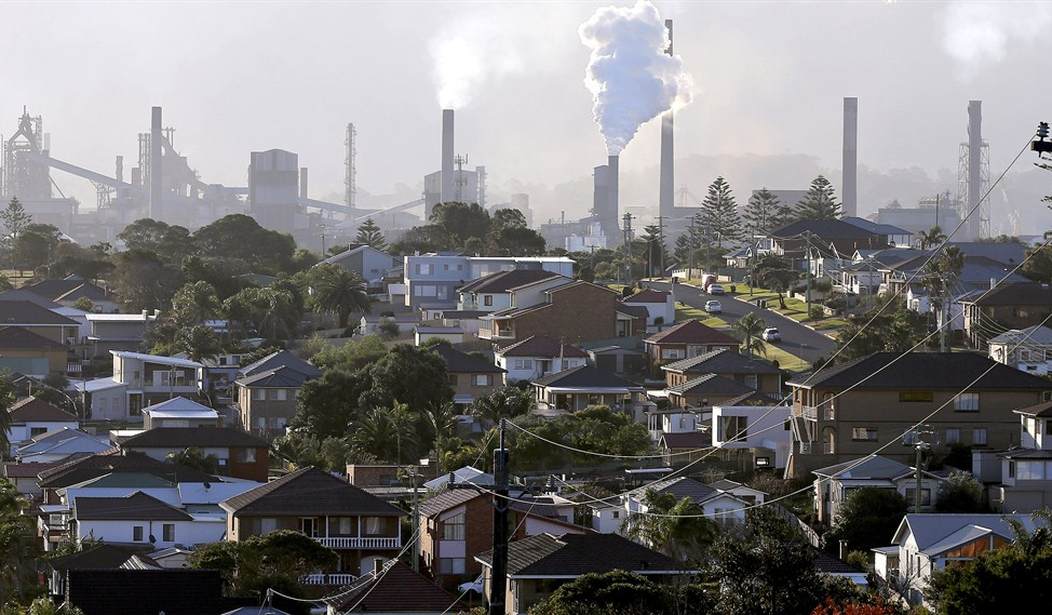Every year, the American public hears new proposals for a tax on carbon dioxide, peddled via fear-mongering and “Chicken Little” style climate predictions. With even some “conservative” and “free-market” groups arguing that a carbon tax is necessary, it is important to understand the devastating effects that these policies have had on taxpayers and consumers in countries that already have carbon taxes.
The evidence is clear. Not only will any new carbon tax do nothing to help the environment, it will raise costs and slash the U.S.’s GDP by up to $6 trillion. And, it will carry a profound human cost borne by the most vulnerable in our society.
I have seen this all happen before. Despite having the world’s richest deposits of coal and uranium, my native Australia has the highest power prices in the world as a result of strict environmental mandates.
The human cost has been tragic. One in four Australian families are unable to adequately heat their homes, which, in the middle of winter, can be a literal death sentence. Retirees are unable to even afford to run their refrigerator and resort to using candles instead of electric lighting. The number of people who have had their power cut off is soaring. Blackouts are becoming increasingly common as “renewables” simply lack the reliability of traditional power. During heatwaves, hospitals are turning off lights and air-conditioning, issuing “Code Yellow Alerts” to ensure backup generators can power life support.
Families don’t only suffer through higher utility bills. They also suffer via higher prices, as businesses face increased costs to bring an array of goods and services to market. Businesses large and small are increasingly being forced to shut down due to skyrocketing electricity bills, resulting in waves and waves of layoffs.
Recommended
Average profit margins for restaurants lie between 2-6 percent. With 5 percent of an average restaurant’s expenses spent on electricity, price increases along the line proposed by carbon tax proponents would wipe out countless businesses. Refrigeration costs account for an even more significant cost component for plenty of industries, ranging from beer brewing to meat processing. While big multinational corporations would be able to absorb these costs, smaller and more boutique producers would be forced to shut down, destroying family owned businesses and creating untold suffering through the unemployment of thousands. Last year in South Australia, a plastics recycling facility was forced to shut down last year as their power bill soared from $80,000 to $180,000 in just 18 months.
Australia’s aluminum smelting industry was forced to drastically cut production last year due to electricity price hikes — placing thousands of jobs at risk. Boyne Smelters, a subsidiary of Rio Tinto, was forced to shed 100 jobs. Even an industry not normally thought of as energy intensive – packaging – has been hit, with one of Australia’s leading manufacturers citing the cost of energy in Australia doubling in considering moving all production offshore . It’s little wonder that the Council of Small Business Australia CEO Peter Strong recently described electricity price hikes as the “biggest business crisis I’ve seen in my lifetime.”
Policies have consequences. As noble as green dreams may be, they come at a cost, and this cost will be borne by lower income folks, the people least able to afford it. The political elites in Washington DC thinktanks or congressional offices earning six-digit salaries supporting and advocating for this tax will be able to afford the increased costs. But a great many Americans won’t.
In Australia, the lowest income households in Australia spend more than 10 percent of their incomes on spiralling energy costs. Meanwhile, more affluent households spend less than 1.5 percent on energy. Any tax on carbon dioxide or any attempt to increase renewable mandates is nothing more than a regressive tax on the poor. It is an immoral move by those rich enough to afford moral grandstanding to penalize those worse off than they are. To make matters worse, all this suffering would do nothing to help the environment. Even if the United States eliminated all domestic greenhouse-gas emissions, it still wouldn’t be enough to offset the carbon pollution coming from the rest of the world. For example, China alone is currently building more coal power plants than the entire energy output of the United States.
If proponents of a carbon tax were serious about the environment, they would instead unleash the power of the free market to drive new technologies. The creativity of the American people has the potential to keep transforming the world through new innovations. Anyone who cares about the environment should let the free market flourish, instead of attacking those Americans who can afford it least with a cruel and unjust tax on carbon dioxide.
























Join the conversation as a VIP Member